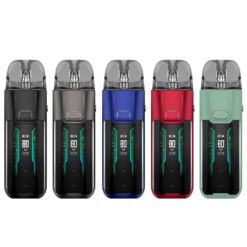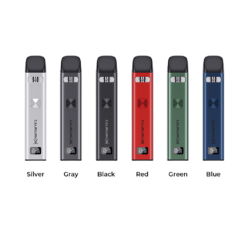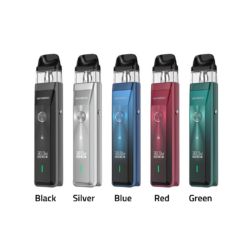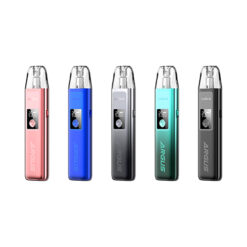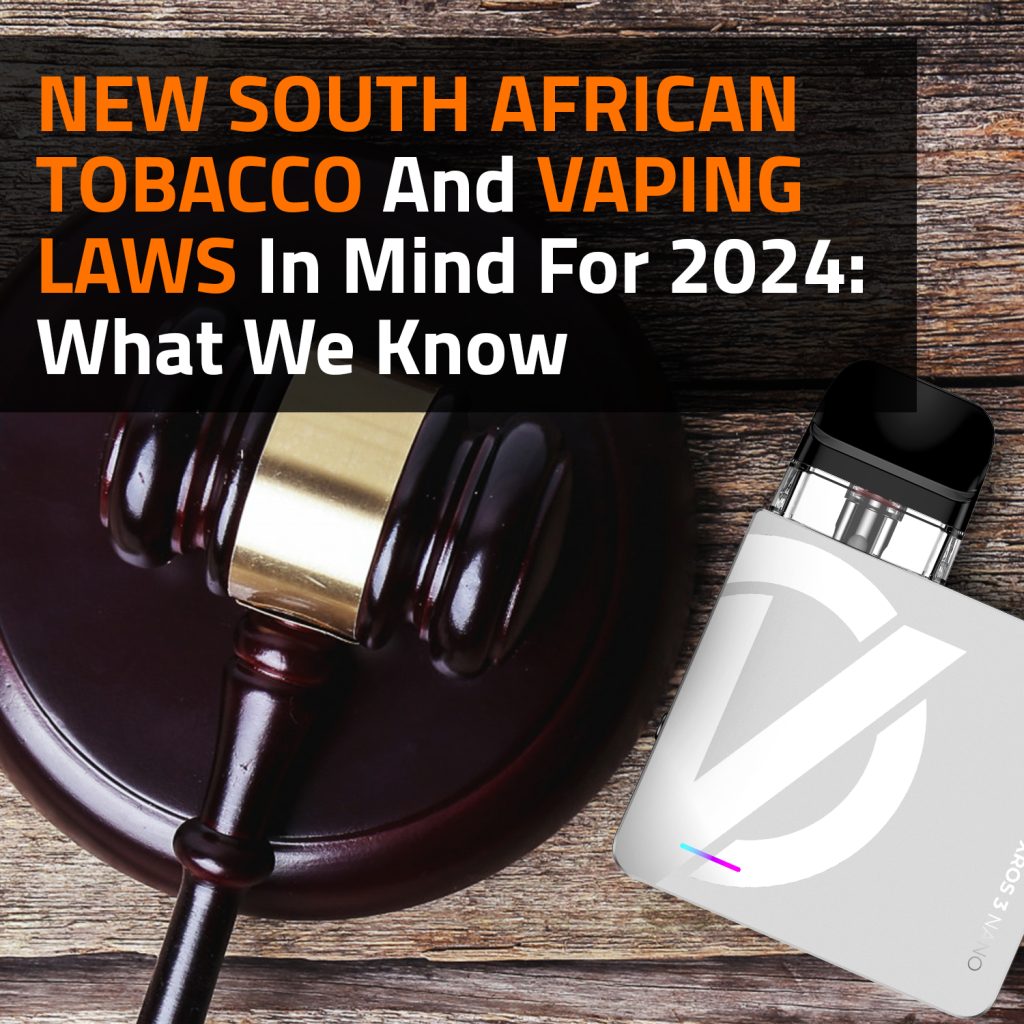The Department of Health released new information on tobacco consumption in South Africa on Thursday, 13 June 2024. Based on the 2021 Global Adult Tobacco Survey (GATS) South Africa report that was recently made public, the average daily smoker in South Africa smokes 8.5 cigarettes a day, and tobacco use among adults in South Africa has reached 29.4%, which is 12.7 million people in total.
With these statistics, it is no wonder that South African anti-tobacco organisations have been urging the government to pass the new Tobacco Products and Electronic Delivery Systems Control Bill. Keeping in mind that vaping is considered to be safer than smoking, the new bill is intended to combat the use of traditional cigarettes and to regulate the vaping market.
The 2021 Global Adult Tobacco Survey (GATS) South Africa Report Statistics
According to recent data, 41.7% of men are currently using tobacco products compared to 17.9% of women. The age range of 45-64 accounts for the highest proportion of tobacco users at 28.6%, with almost half of this demographic being males (47.4%).
Dr Catherine Egbe from the South African Medical Research Council (SAMRC), also the lead investigator of the GATS, states that approximately 21.2% of the adult population smoke tobacco daily (35.1% of which are men and 8.3% of which are women). About 4.6% of adults in South Africa smoke occasionally.
When it comes to the age where individuals start using tobacco products, the average age of initiation is around 17.6 years old when consulting adults aged between 20 and 34. Around 33.9% of daily users smoke a cigarette within five minutes once waking up. The lowest prevalence of tobacco users can be found in Limpopo, while the highest is in the Northern Cape, followed closely by the Western Cape.
Expenses Related To Tobacco Products
The average monthly amount spent on manufactured cigarettes totals R 263.10 among smokers. Men spend around R 273.20 a month on average, while women spend about R 207.20 monthly. Looking at 2024 alone, the revenue in the South African cigarette market reaches up to R 255.39 billion.
Although the legal cigarette market in South Africa is as prevalent as ever, the illicit trade of tobacco products has boomed even further. South Africa’s government has lost around R119 billion when it comes to excise and Value-Added Tax (VAT) revenue between the years of 2002 and 2022 due to the illicit trade market. In 2022 specifically, about R3 billion was lost in VAT revenue along with R15 billion in excise revenue.
In 2009, the illicit cigarette market accounted for around 5% of the total cigarette market in South Africa. The illicit market reached its peak in 2021, reaching 60%. In 2022, it sits at a slight decrease of 58%.
The Use Of E-Cigarettes And Vaping Devices
Recent reports show that about 4% of the adult South African population are regular e-cigarette users, with 11.3% of adults having tried e-cigarettes at some point. However, the most notable concern regarding the use of e-cigarettes is among the youth. There are a few guidelines given by the Vapour Products Association of South Africa (VPASA) to prevent the youth from accessing vaping products, including:
- Stores should have clear signs stating that they will make no sales to people who are under the age of 18.
- Posters must be displayed stating that requests may be made for a customer to show their ID.
- Online sales platforms should have age gateways that confirm a customer’s age before they can make a purchase
However, stricter regulations and laws are required to ensure that the youth do not have access to electronic cigarettes and vaping devices. Regulations should also be put in place to ensure the quality and safety of vaping products.
Statistics On Quitting Tobacco Products
Among the amount of adults who currently smoke tobacco, 80.9% have attempted to quit smoking cigarettes without any assistance, 401% have made use of pharmacological therapies, and 42.9% received advice from a healthcare professional to quit smoking.
Second-Hand Smoke Exposure
About 74.4% of adults who go to public areas were exposed to second-hand smoke at taverns, bars, night clubs, or shebeens. Additionally, 19.9% were exposed to second-hand smoke at school, about 16.0% at tertiary institutions, and 11.3% at cafes.
The Tobacco Products And Electronic Delivery Systems Control Bill
Dr Egbe emphasises the importance of implementing smoke-free laws, tobacco taxes, complete bans on promotion and advertising of tobacco products, and graphic health warnings to reduce young people from being initiated into the smoking culture.
By introducing the Tobacco Products And Electronic Delivery Systems Control Bill, the government aims to change South Africa’s tobacco culture by:
- Banning vending machines that sell cigarettes.
- Declaring indoor public spaces and specific outdoor areas to be 100% smoke free.
- Requiring tobacco products to have plain packaging with clear and graphic health warnings and images.
- Banning the display of tobacco products at point-of-sale.
- Regulating and controlling electronic nicotine and non-nicotine delivery systems.
Egbe argues that we should implement comprehensive laws that are more compliant with the World Health Organisation (WHO) Framework Convention on Tobacco Control to protect people from second hand smoke exposure. She also mentions that it is important to focus on providing cessation services to individuals who want to quit smoking. This way, we can reduce long-term tobacco use and the negative impact of tobacco-related diseases.
Statistics show that the use of cigarettes in South Africa is quite problematic. As vaping is regarded to be a safer method of nicotine consumption, smokers should not be afraid to explore this option. Although the Tobacco Products And Electronic Delivery Systems Control Bill is not yet officially implemented and remains a suggestion as of now, new regulations on cigarettes seem to be necessary and beneficial. Additionally, regulations in the field of vaping can bring about an upgrade in the quality and safety of these products, ensuring a better experience for the South African vaping community.


